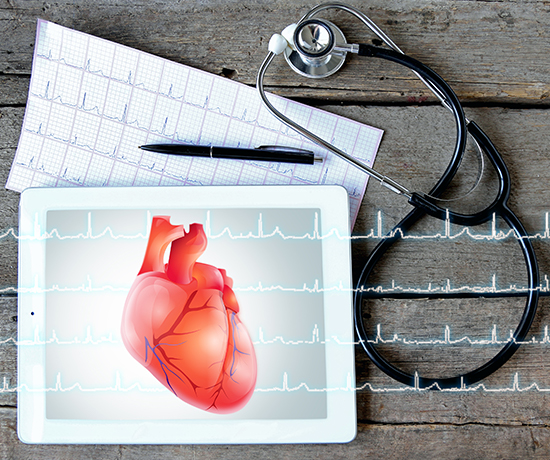Catheter ablation is a procedure to fix heart rhythm issues without medication and has a clear recovery path. We'll walk you through the steps- from right after the treatment to returning to your routine. Keep reading for a simple guide on your healing process.
Understanding Arrhythmias: Diagnosis and Impact
Ever felt your heart skip or race? That could be an arrhythmia, a heart rhythm problem that can impact your day-to-day and stress you out.
It is crucial to find a qualified electrophysiologist for radiofrequency ablation for arrhythmia in Chennai. First, they will conduct a comprehensive examination and devise a suitable treatment plan. Arrhythmias can be unpredictable, and their symptoms may come and go without warning. Therefore, it is important to consult an expert who can accurately identify the condition and provide appropriate care.
Doctors use several tests to determine what's going on with your heart:
- An ECG for a quick look at your heart's electric signals.
- A Holter monitor- a small ECG you wear for a day or more.
- An echocardiogram, which uses sound to get pictures of your heart.
- A CT angiogram or an MRI for a super detailed view of your heart.
- An implantable loop recorder tucked under your skin to keep track of your heartbeats.
With these tests, you'll know what kind of arrhythmias you have and start managing them.
Preparing for Catheter Ablation: Steps and Importance
Getting ready for your catheter ablation? Here's what to do:
- Get blood tests to check your health.
- Inform your doctor of any medication you're on.
- Have a full physical and go over your medical history to tailor the ablation to you.
- Don't eat after midnight before your procedure to lower the risks of anaesthesia.
These steps help make sure you're safe during the treatment and play a big part in its success.
Catheter Ablation Recovery: Timeline and Steps
You start getting better after your catheter ablation. Knowing what to expect helps you get back to normal life with ease.
Here's the recovery play-by-play:
- Nurses might press on where the catheters went in to keep bleeding in check and continue monitoring your progress.
- You may feel a bit sore or bruised where the catheters were inserted. It is normal.
- You'll likely be up and about in a few days, but if something feels off, like pain or weird heartbeats, call your doctor.
- Follow what your doctor says about check-ups, meds, and how active you should be.
- You should be good for walks by week two. Picking a reputed electrophysiologist helps make sure your ablation works well long-term.
Post-Ablation Care: Instructions and Medication Adherence
After your ablation, it's imperative to follow your doctor's care tips. Keep the wound clean, watch for infection signs, and take it easy on exercise for a bit.
If you're on medication, especially blood thinners, take them as recommended. They help keep clots and swelling away.
Don't skip your follow-ups. They're crucial for checking your heart rhythm and the ablation's success. Staying on top of your care means the best heart health outcome.
Understanding the Risks of Catheter Ablation
Thinking about radiofrequency ablation for arrhythmia in Chennai?
It's smart to know the risks. Infections are rare but possible. There's also a small chance of hurting tissue by accident.
It's natural to worry about risks like stroke, but good talks with your cardiologist can ease your mind. You've got to balance these risks with how much the procedure could help you. Talk it through with your healthcare team to get the whole picture for your heart care plan.
Catheter Ablation Outcomes: Effectiveness and Recurrence
Catheter ablation works for about 90% of people. However, sometimes, arrhythmias recur. Hence, the treatment isn’t a permanent solution.
Your age, heart condition, and the type of arrhythmia can affect the recurrence of arrhythmia. If it does, a second ablation or meds might be the way to go.
Talking with your cardiologist about what might happen after is important. They can give you tailored advice, which helps you know what to expect for your heart.
Exploring Alternatives to Catheter Ablation for Arrhythmia
Catheter ablation is one way to deal with heart rhythm issues, but there are other paths too. Changes to how your lifestyle and medications can also help keep arrhythmias in check.
Lifestyle Changes and Medication
Healthier habits can make a big difference. Eating right, moving more, cutting caffeine and alcohol and quitting smoking are good moves for your heart.
Medicines can help control your heart rate or rhythm. Beta-blockers, calcium channel blockers, and antiarrhythmics are some options. Discuss with your doctor about what might work for you and any side effects.
Making the Decision
Deciding between ablation or other treatments? Think about what's best for your health and chat with your doctor. They'll think about your heart issue, overall health, and past treatments to help you choose.
Knowing all your choices, including risks and benefits, is part of taking charge of your heart health.
Optimize Recovery: Blend Expert Guidance with Commitment
Your catheter ablation is a big step to getting your heart rhythm right. It takes patience and following your heart doctor's personalised plan. To achieve the best recovery, it's important to combine the expert advice of professionals with your own dedication.
Got heart health on your mind? Consult the best electrophysiologist in Chennai. Book your appointment today.

